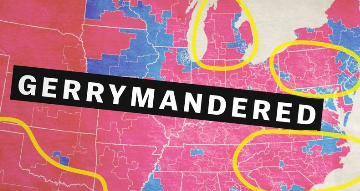Photo: YouTube
Changing demographics, racially polarized voting, and one-party control of redistricting are causes for concern over how the Georgia General Assembly might redistrict the state later this year, a new report from the Lawyers’ Committee for Civil Rights Under Law has found.
The report examines election data from 2004 – 2020 and makes several findings, including that as voters of color have gradually become a larger share of the electorate, Georgia has changed from a Republican-dominated state to one in which both parties are competitive. Most voters of color vote Democratic, whereas most white voters vote Republican. As we head into the 2021 redistricting cycle, voting rights advocates need to be on high alert to ensure communities of color receive fair representation, as Republicans will control the redistricting process and may seek to intentionally minimize the voting strength of voters of color in order to maximize Republican results.
“As Georgia’s demographics continue to change and Black Americans and other communities of color increase their share of the electorate, the general assembly must make certain these communities are not deprived of the fair representation they deserve,” said Jon Greenbaum, chief counsel and senior deputy director of the Lawyers’ Committee for Civil Rights Under Law, and co-author of the report. “The state’s districts currently minimize the voting power of communities of color. As we move into the 2021 redistricting cycle, we will be on high alert to ensure racial gerrymandering and intentional discrimination does not happen.”
The report found that since 2004 the percentage of white registered voters has decreased by 16 percentage points (from 68.7% to 52.7%). For districts in which 40% of more of the registered voters are Black Americans, candidates that identify with the Democratic party almost always win. On the contrary, districts in which 55% or more of the registered voters are white Americans almost always elect a candidate that identifies with the Republican party.
The Georgia General Assembly’s current plans are problematic because they pack voters of color into districts to produce a max Republican result. For example, in the Georgia Senate, there are 15 districts in which more than 60% of the registered voters are persons of color, of which all elect Democrats. This is compared to 31 districts where 55% or more of the registered voters are white, all of which elect Republicans. If the general assembly draws districts this year that are similar to the ones currently in place, it would raise serious concerns of an intention to minimize the strength of voters of color.
Voting rights advocates can challenge redistricting plans in court under intentional discrimination and racial gerrymandering claims, or results claims under the Voting Rights Act. To ensure that the Georgia General Assembly upholds the one-person, one-vote doctrine and communities of color receive their fair share of the electorate, the national Lawyers’ Committee and its partners will be keeping a close-eye.







